In recent years, the debate surrounding using non-lethal force by law enforcement and civilians alike has gained significant attention.
One such method of non-lethal force is the bean bag round, a type of ammunition designed to incapacitate individuals without causing serious injury or death.
But, are bean bag rounds legal?
In most cases the bean bag rounds are legal for normal home defense in the United States, as they are specifically classified as non-lethal ammunition. But, you should check out the rules and regulations of your state or local judication regarding their possession or use.
This article delves into the legality of bean bag rounds, examining their use, regulations, and potential impact on public safety.

Join us as we explore the world of non-lethal ammunition and answer the question: are bean bag rounds legal?
Are bean bag rounds legal for home defense?
Bean bag rounds are generally legal for home defense in the United States, as they are classified as non-lethal ammunition. However, laws and regulations regarding their possession and use can vary depending on the state or local jurisdiction.
It is essential to check the specific laws in your area to ensure compliance.
While bean bag rounds offer a less-lethal alternative for self-defense, it is crucial to remember that their use can still result in injury or death under certain circumstances.
Therefore, proper training and understanding of the potential risks are necessary before employing bean bag rounds for home defense.
What bullets can you use for home defense?
Choosing the right ammunition is crucial for both effectiveness and safety when it comes to home defense. Here, we will discuss several bullets suitable for home defense, each with advantages and disadvantages.
Hollow-Point Bullets
Hollow-point bullets are designed to expand upon impact, creating a larger wound channel and transferring more energy to the target.
This expansion reduces the risk of over-penetration, making them a popular choice for home defense. Some advantages of hollow-point bullets include the following:
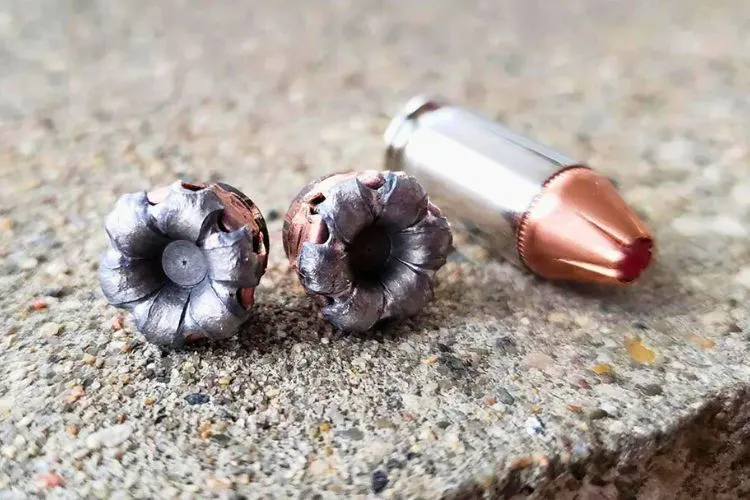
- Increased stopping power
- Reduced risk of collateral damage
- A wide variety of calibers are available
Frangible Ammunition
Frangible ammunition is designed to break apart upon impact, minimizing the risk of over-penetration and collateral damage.
These bullets are made from compressed metal powder, which disintegrates upon striking a hard surface. Some benefits of frangible ammunition include the following:
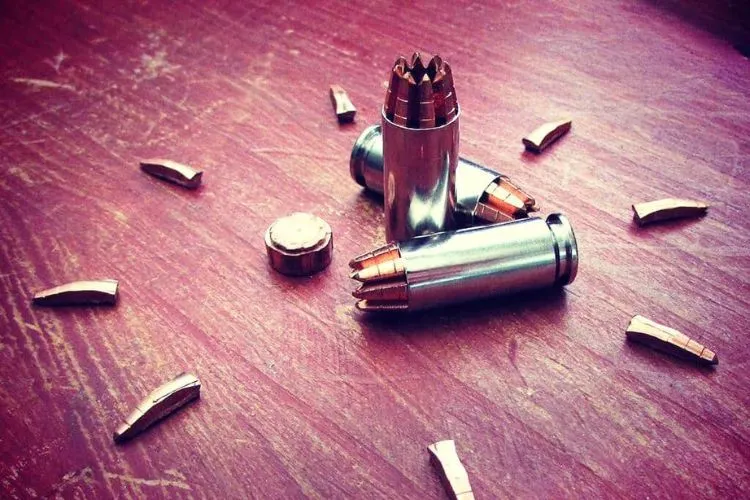
- Reduced risk of over-penetration
- Minimized collateral damage
- Suitable for use in indoor environments
Shotgun Ammunition
Shotguns are popular for home defense due to their versatility in ammunition types. Some common shotgun rounds for home defense include:
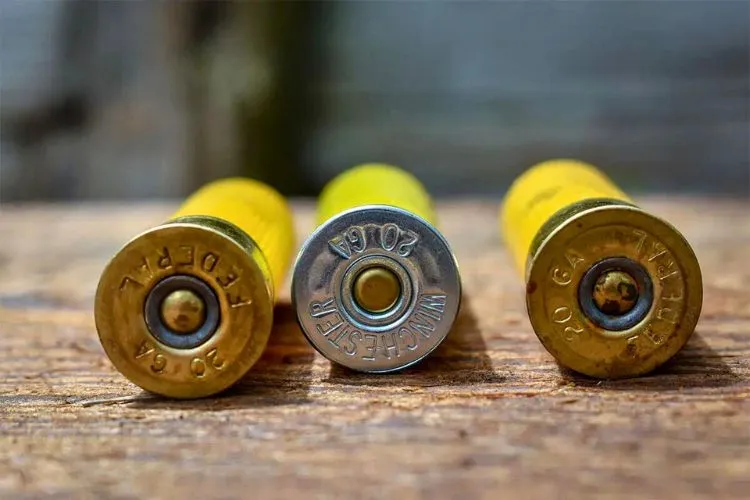
- Buckshot: Large pellets that offer significant stopping power at close range but with a higher risk of over-penetration.
- Birdshot: Smaller pellets that are less likely to over-penetrate but may not have the same stopping power as buckshot.
- Specialty rounds: These include bean bag rounds, rubber buckshot, and rubber slugs, which are less-lethal options for home defense.
Less-Lethal Ammunition
For those seeking a non-lethal approach to home defense, there are several options available:
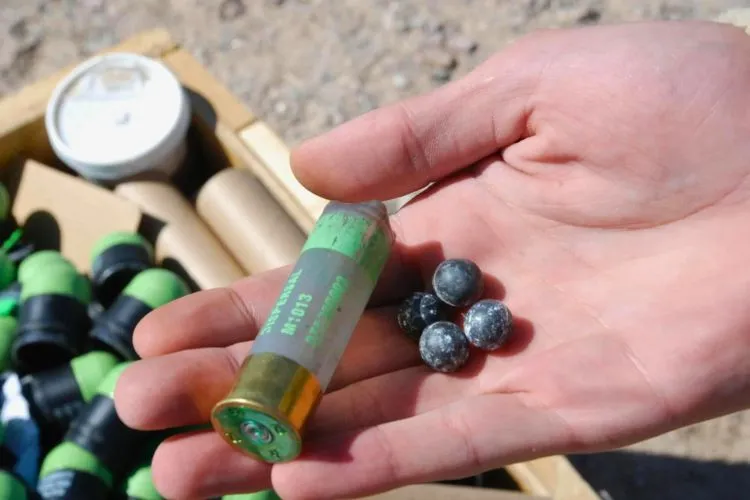
- Bean bag rounds: As previously mentioned, these rounds are designed to incapacitate without causing serious injury or death. They are typically fired from shotguns.
- Rubber bullets: Rubber or plastic projectiles that can cause pain and temporary incapacitation but with a lower risk of serious injury than traditional bullets.
What is the minimum caliber for home defense?
There is no universally agreed-upon minimum caliber for home defense, as personal preferences and individual circumstances vary.
However, many experts recommend a minimum caliber of 9mm for handguns and .38 Special for revolvers due to their balance of stopping power, manageable recoil, and capacity.
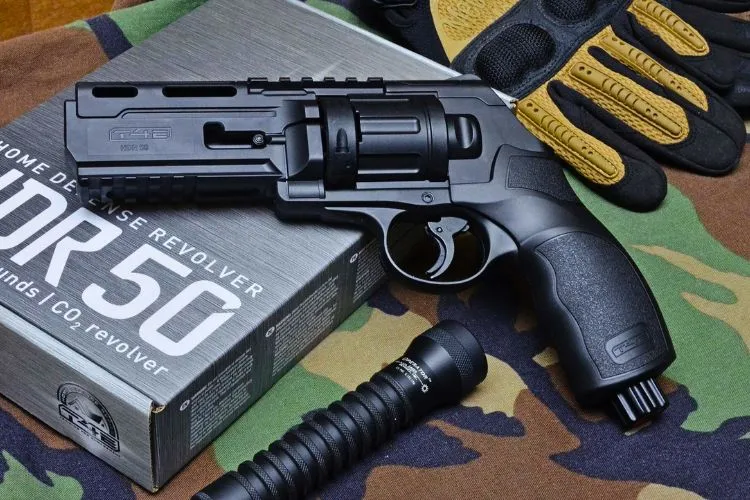
For shotguns, a 20-gauge or 12-gauge is often advised. Ultimately, the most critical factor is the shooter’s ability to handle and accurately fire the chosen firearm, regardless of caliber, to ensure effective and responsible home defense skills.
frequently asked questions (FAQs)
Are bean bag rounds lethal?
Beanbag rounds are designed to be non-lethal, strongly impacting, and incapacitating individuals without causing serious injury or death. However, they can still be lethal under certain circumstances, such as when fired at close range or if they strike a particularly vulnerable body area. Proper training and adherence to guidelines are crucial to minimizing the risk of lethal outcomes when using bean bag rounds.
Can beanbag rounds break bones?
Yes, bean bag rounds can break bones, especially if fired at close range or strike a particularly vulnerable body area. While they are considered less lethal, bean bag rounds can still cause significant injuries, and proper training and caution are necessary when using them.
Can target rounds be used for self-defense?
While target rounds, such as full metal jacket (FMJ) bullets, can be used for self-defense, they are not ideal due to their increased risk of over-penetration and potential to cause collateral damage. Hollow-point or frangible ammunition is generally preferred for self-defense, as they are designed to minimize over-penetration and maximize stopping power.
Are bean bag shotgun shells legal in California?
Beanbag shotgun shells are generally legal in California for civilian use, as they are classified as non-lethal ammunition. However, checking local laws and regulations to ensure compliance is essential, as some restrictions may apply. Additionally, proper training and understanding of the potential risks are necessary before employing bean bag rounds for self-defense or other purposes.
Conclusion:
As we have explored throughout this article, bean bag rounds are generally legal in most jurisdictions, including for home defense purposes.
However, it is crucial to be aware of local laws and regulations, as they may vary from one area to another.
While bean bag rounds offer a less-lethal alternative for self-defense and law enforcement use, they still carry the potential for causing injury or even death under certain circumstances.
Therefore, proper training, understanding of their limitations, and responsible use are essential for ensuring bean bag rounds’ safe and effective employment.
By staying informed and adhering to best practices, individuals can make informed decisions about the role of bean bag rounds in their safety and the broader context of non-lethal force.


